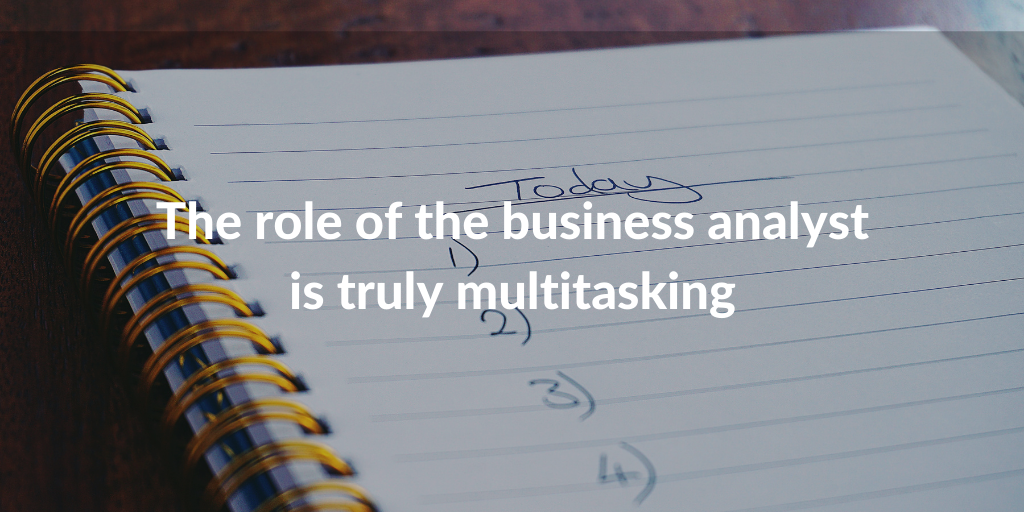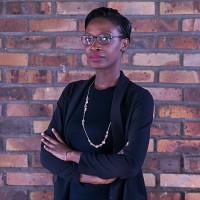What is your current job, what do you do?
I am a senior IS consultant in a digital transformation consulting company. My assignments change roughly every 1.5 / 2 years. At the moment, I work as an Agile Business Analyst with the Renault management. I help and accompany them with a project that is trying to define a tool that will manage all the applications of their dealers.
How did you come to have a career in project management and agility?
I have a fairly mixed background, I obtained my engineering degree in electronics and computer science at ECE Paris. However I did not want to orient myself towards the profession of developer as I was looking for something more functional. I started out as a project management assistant where, over my seven years of experience, I was able to acquire various skills, particularly in needs management. For two years, in the continuity of my career, I became a business analyst.
There is not just one definition for the job of business analyst but several realities depending on the company where he / she works. What would be your definition of business analyst?
As you said, there is no definite definition of the profession of business analyst and it is not always easy for us to define ourselves. At the start, the role is rather vague. Mainly we are present where we are needed. This is my second assignment as a business analyst and what I mainly take away from the role of a business analyst is that it can be compared to a Swiss army knife. He / she must have various skills in order to help the Product Owner, the Team Leader and the Technical Team on Agile projects. You have to know how to analyze situations, know how to express a need to the customer, know how to present a solution, know how to guide the technical team, support the Product Owner.
The business analyst is truly multitasking. It is also my role to raise an alert if user stories are poorly written, if they are missing or if the Product Owner is overwhelmed. I sometimes take the follow up and write them for him/her. Clearly, my role is to work in support of the Product Owner, while being close to the technical team and the team leader to know their needs in terms of technical limitations and have a 360 ° vision on each project.
In my view, the business analyst must become familiar with the organisation of work resulting from the internal and external constraints of the company. He/she can acquire this organisational knowledge by observing all the key contributors of the project. This in order to take ownership of the way in which the user operates within the framework of his work environment and to understand the links and interactions between the roles and services of the organisation. Business processes are of course at the center of the analysis, but we must also list all the elements that might impact the project.
I would even add that the profession of business analyst is open, it is not a fixed profession. As the perimeter is not always clear or well defined, it is an opportunity for the business analyst, to reinvent his profession and to redefine his perimeter, depending on needs, skills, desires. The business analyst has the possibility of always doing more to participate, to better help the realization of the project and to discover new things. That’s the whole point of the job.
What are the issues / challenges that business analysts can encounter?
The main challenge is precisely this completeness. You can be a good business analyst, but it is very difficult to be a complete business analyst. There are always gaps or weak points in certain areas. For example, in all projects, I will be expected to know how to do SQL and queries, which is not necessarily my daily life. It is at this very moment that it is important to strike quickly, when speaking to me in technical language, to update myself quickly to at least understand the issues that are addressed to me. As the business analyst is expected on all fronts, responsiveness makes the difference and allows not to be excellent but at least effective on all fronts.
What do you think is key to being an excellent business analyst?
You have to be humble, learn quickly and not be afraid to say you don’t know the answer. It might have been one of my weak points at the beginning but today it has become my strength. We always work in very competitive projects, where there are high expectations of the consultant (business analyst). As a consultant, It can be scary to say that we do not always know the answer. However, if we do admit this, it will help to identify the issue and get closer to the right people that will be able to teach us.
The second point that joins the first is listening and learning. There is always a solution to a challenge, but you have to understand from the outset how the project team works. Who are the people who can help me learn and who are the people I have to help? .
What about Agile and remote work, how have you handled the COVID situation?
I am seeing it as a very interesting experience. To me it proves that although human contact is pleasant, we do not especially need to be physically present in the same space to work, exchange and learn.
We continued to have our meetings and ceremonies (daily meeting, sprint review) remotely using the Microsoft Teams collaborative communication application. This app also offers an interactive whiteboard on which it is possible to recreate post-its , draw, write notes or even create complex diagrams. We have not encountered any particular communication or other problems. It really depends on the projects, but since our technical team is international, we were already used to working remotely. The team on-site has adapted very well by increasing the number of mini-visio during the day.
What are some concepts you would like to focus on in the near future to develop yourself as a professional?
In the near future I would like to focus on project management. As a business analyst, we see and hear a lot of things regarding the project. I would like to have the position that goes with this experience acquired and which allows us to look at the project as a whole.
I am also very interested in developing my skills in business strategy. Business strategy requires good analytical skills, in order to help either companies, managers or directly large projects to know how to define themselves, to embark on a market.









